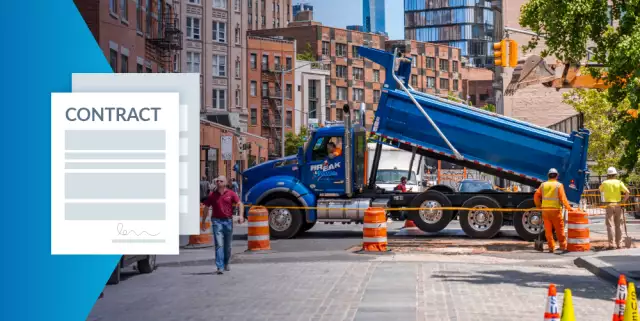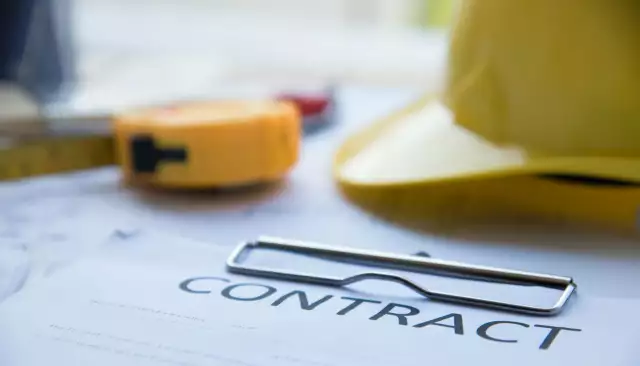New York Home Improvement Contracts: What Residential Contractors Need to Include
New York Home Improvement Contracts: What Residential Contractors Need to Include

In the State of New York, contractors working on certain residential projects need to have a good understanding of the NY Home Improvement Contracts Act. Under these statutes, on certain protected projects, there are a fair amount of rules and requirements that must be met, particularly when it comes to what must be included in the contract between the contractor and the owner. Here’s what NY residential contractors must include (and what can’t be included) in a New York home improvement contract.
What types of projects are covered under the NY Home Improvement Contracts Act?
Let’s start with some basic definitions under NY Gen. Bus. Law §770.
What’s considered a “home improvement contract” in New York for the purposes of these rules? First and foremost, it covers all contracts that are valued at $500 or more. As far as the services being performed, home improvements include the following:
Repairing, remodeling, altering, converting, or modernizing of, or adding to, residential property and shall include, but not be limited to, the construction, erection, replacement, or improvement of driveways, swimming pools, siding, insulation, roofing, windows, terraces, patios, landscaping, fences, porches, garages, solar energy systems, flooring, basements, and other improvements of the residential property and all structures or land adjacent to it.
This definition also covers a few other types of contracts. One such additional contract includes the construction of “custom homes” — in other words, a new, single-family residence to be constructed on premises owned by the purchaser at the time of contract that the owner intends to occupy.
Another inclusion is the installation of any “home improvement goods or services.” Think alarm systems, A/C systems, fencing, or any other goods which become permanently affixed to the property.
Furthermore, the statutes list specific types of contracts that do NOT fall under these requirements:
What needs to be included in a NY home improvement contract?
Now onto the meat of these statutes: What must be included in a NY home improvement contract? These requirements can be found under NY Gen. Bus. Law §771. The first step is that the contract must be in writing and signed by both the contractor and the property owner.
The contract must also include all of the following information:
“Any contractor, subcontractor, or materialman who provides home improvement goods or services pursuant to your home improvement contract and who is not paid may have a legal claim against your property known as a mechanic’s lien. Any mechanics lien filed against your property may be discharged. Payment of the agreed-upon price under the home improvement contract prior to filing a mechanic’s lien may invalidate such lien. The owner may contact an attorney to determine his rights to discharge a mechanics lien.“
Additional requirements for home improvement roofing contracts
In addition to all of the required information listed above, roofing contractors on such covered projects have a few extra requirements
The first of these additional requirements pertains to disclosures of insurance coverage.
If the roofing contractor has employees, then they must carry worker’s compensation insurance covering all employees. If there are no employees, then they must provide a certificate of attestation of exemption (CE-200) from the NY Worker’s Compensation Board.
Also, roofing contractor’s must also provide proof of general liability & property damage insurance coverage of at least:
One last thing to note: Roofing contracts on these types of projects cannot require a deposit or other payments prior to commencement of the work — with one exception. The roofer may invoice the owner for materials upon delivery of said materials to the owner’s property.
Penalties for non-compliance
Failure to include any of these provisions, or other violations under the Home Improvement Contracts Act can lead to varying degrees of penalties.
“Technical violations,” are subject to civil penalties of no more than $100 per violation. These encompass minor violations. However, substantial violations come with steeper penalties of up to $250 per violation or 5% of the aggregate contract price; which cannot exceed a total of $2,500 in penalties per contract. These penalties may be increased at the discretion of the court, depending on the following factors:
Speaking of willful violations, if the violation is found in bad faith and constitutes fraud under NY Gen. Bus. Law §772 an owner may sue and recover the actual damages incurred, plus $500, and any reasonable attorney fees associated with the litigation.








